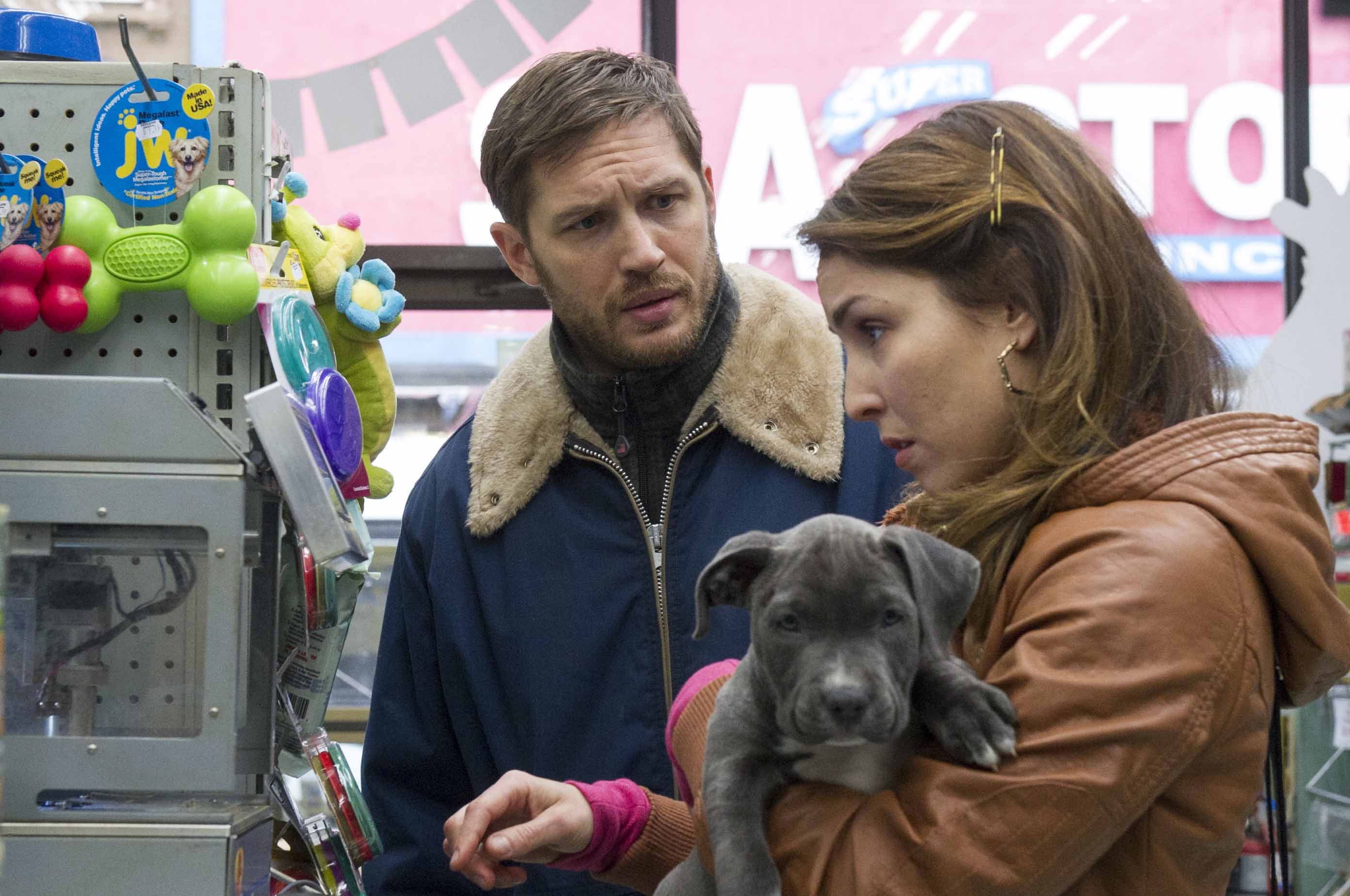Here is Noomi Rapace, the original Swedish “Girl With the Dragon Tattoo,” analyzing the fictional world of working class poverty and crime that novelist (“Mystic River,” “Shutter Island,” “Gone Baby Gone”) Dennis Lehane creates.
“Dennis captures the tension between broken dreams and those who dream them,” Rapace, co-star of the film version of Lehane’s latest, “The Drop,” says. “Everybody has a dream and a belief that if your dream is strong enough, you will find a way. And this country will embrace you as you do and doors will open as you fight for that dream.
“What Dennis does is undress that dream. He shows us winners, but mostly losers in a society where it’s really tough to be a loser. It’s a hard society if you’re not included in that small group of winners.”
Rapace, 34, has been making films in this country since “The Dragon Tattoo” trilogy made her an international star. And as an outsider, a non-American and non-native English speaker, she sees Lehane’s work as a form of cultural criticism.
“I think that maybe this country has greater contrasts between winners and losers than the rest of the world. Your media created this celebrity culture where the winners and losers are who’s up and who is down, who is skinny and who is fat.
“This country has brighter lights and darker darks and the contrast seems more obvious every day.”
Quoting her back to Lehane during a later interview warrants a chuckle of recognition.
“What Noomi’s talking about is true,” he says. “At the end of the day, what I’m writing about over and over again is the have-nots. I am writing about their battles. I write about violence because when you take away the weapons of the one percent, that’s what the have-nots are left with — violence. When you can’t afford to screw somebody with the stroke of a pen onto a contract, when you can’t afford to buy the White House, the Congress or a Supreme Court with ‘Citizen’s United,’ you get Ferguson, Missouri — violence. You get people who react to saying ‘Listen to me LISTEN to me’ and having no one hear them.”
In “The Drop,” those without power or money are Cousin Marv (James Gandolfini), who lost control of his Brooklyn bar to a Chechen mobster, Marv’s quiet, passive bartender Bob (Tom Hardy), who finds himself pushed around by Marv and others who sense weakness in him, and Nadia (Rapace), the damaged, abused woman Bob meets and bonds with over a puppy he’s found roughed up and dumped in her garbage can.
Lehane scripted “The Drop” from his own short story, and now has turned it into a novel. In the film, the late Gandolfini suggests the disappointment of a man with big dreams, Hardy and Rapace hint at the desperation and potential for violence common to people backed into a corner.
“If you show weakness in a battle you are lost, in this world,” Rapace says. “If you show any doubt, your opponent will come in and crush you.”
Lehane marvels at the cast the film attracted, especially Rapace. “Nadia is possibly the single-most damaged human being in the film,” he says. “Damaged urban women, to my experience, don’t talk much. We had to have an actress who could convey a lot with very little said. She has this fragility with an explosive side, hidden just beneath the surface. You trip the wrong wire, something could go off. I see an abused human being in her Nadia, an abused human being who will not be abused again.”
That’s not a huge departure from the role that made Rapace famous, but Rapace laughs at the way Hollywood seems to see her.
“People think I’m depressed, dark, moody and complicated,” she says. “They meet me and it’s ‘You smile so much! You seem so light and happy.’ I’m drawn to depressed characters, people fighting and struggling. But I almost never get depressed. You become an actor, I think, so you can play someone totally the opposite of yourself.”
Rapace considers this her best performance in a Hollywood film, because unlike her first ventures in American movie making — a “Sherlock Holmes” sequel, “Prometheus,” the “Alien” prequel, and “Dead Man Down” — Rapace is now comfortable with English, which she didn’t learn until Hollywood came calling.
“Now, I live in London,” she says. “Now, I speak it constantly. I’m in practice. I DREAM in English.”
When you dream in a language, acting in it must seem like a piece of cake.



